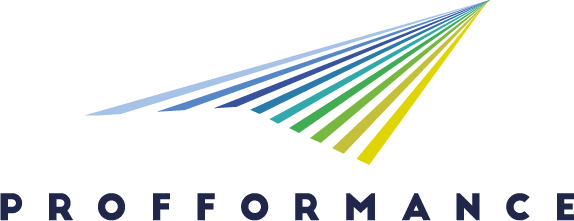SusTour: Future
Sustainable tourism: On the journey to the future
- Other:
Sustainable tourism
2. Innovative teaching and learning
- Differentiated instruction - promoting diversity of materials and learning styles
- Innovative physical classroom activities
- Simulation techniques: games, play and role-play – simulation-based learning techniques
- Case-based teaching, case study – object of study to put into practice the knowledge acquired through a real, fictitious or adjusted description/case of reality.
Connected to every aspect of life, tourism has the power to destroy or regenerate destinations - local communities and ecosystems. In the world burdened with a host of interconnected issues, including climate change and the pandemic, it would be irresponsible to leave this potential for positive change untapped. We can hope for a sustainable future in which tourism is a “force for good” only if we prepare the coming generations of tourism professionals for such a journey - knowledgeable, understanding, compassionate, creative, willing, dedicated. This task requires a complex, well thought-through, and devised approach in which all stakeholders’ needs are addressed. As in tourism, the essence of education is experience. Although they cannot be created, experience and transformation can be facilitated and co-created provided the right context. In tourism education, in particular, creating an engaging educational experience is the sensible approach. Textbooks are a common source of knowledge, but a passive educational resource. Still, in the digital era and with a growing need for tailor-made educational experiences, educational meaningfulness can be achieved through creating books as a “live educational matter”. The main innovative achievement of this project is an open-source e-book published in late 2021. It was used at two (undergraduate and master) courses throughout the winter term 2021-22. Although this approach is universal, the first edition is in Serbian, aiding the Balkans region on the road to sustainable tourism. It serves as guidelines for educational experience co-creation for students and helps instructors become facilitators. Through it, the learning process is meaningful, purposeful, transformational, informational; inclusive, genuine, collaborative; useful, adaptable, inspirational, challenging, and fun. For that purpose it contains materials for online/offline collaborative/ individual work, for in-class/ independent environment: * a 100 multiple-purpose and complexity tasks including simulations, * 20 real (global to local) case studies, * latest tourism management tools, initiatives, and approaches, * cards/bookmarks for easier book navigation, * "What I know/ can do" - a (self- or instructor-led) checklists of achievement * "For further research" – pools of resources It helps the process of assessment – fair, transparent, adaptable. It accounts for acquired knowledge, and the ability to defend with logic and reason one’s beliefs.
Methodology
Tools, equipment, technology used
Outcomes and outputs, main results
Lessons learnt
Adaptability and sustainability of the best practice (for other institutions)
Promotion of best practice
Scope and impact
- Course/department level
- Faculty level
- Institutional level
- Cross-institutional level
- National level
- EU/EHEA/International level
6.1 Digitalization
- Outstanding, innovative, excellent practices of online / blended / hybrid learning
- Digital skills development and assessment both general and profession-related, embedded in course design, in teaching and assessment
Reasoning: An open-source e-book in PDF is publicly available. It contains digital materials with granted permissions, e.g., videos, interactive maps, or data sources based on which new tasks/ activities are developed to serve specific sustainable tourism educational purposes. Links to free tools for sustainability standards and indicators are provided together with accompanying simulations. A special section in each chapter describes the benefits of accessing various websites (for further research).
6.2 Internationalization
- Developing students' multicultural awareness
Reasoning: The content is purposefully chosen to illustrate cultural and professional diversity as essential in tourism. Diverse case studies reveal unique traditions and develop students’ multicultural awareness – cultural and environmental (e.g., slava as Serbian heritage; mangrove forests as a resource for a traditional lifestyle). Courses based on selected chapters already exist in English for international students. Students are encouraged to engage in presented global sustainable initiatives/ orgs.
6.3 Inclusion and diversity, universal design
- Innovative teaching methodology for inclusion and meet diverse student needs
- Other:
addresses students with limited resources/ access
Reasoning: The book caters to students’ preferred learning styles/dynamics. The instructor or an individual user can assess the capabilities and choose materials accordingly. Although not devised for special needs students, the materials proved feasible (tested in-class with a student with disabilities). The strongest limiting factor to quality education is lack of resources (e.g. financial). Omitting tasks that require equipment and internet access does not take away from a rich and purposeful experience
6.4 Sustainability
- Sustainability goals are addressed in the course(s)
- Teaching material contains profession related sustainability aspects
- Special courses reflecting to UN 2030 Sustainability goals, Green Deal - mini-courses, microcredentials
- Environmental attitude, skill development and assessment either general or profession-related
- Sustainability aspects are considered in all phases of the learning practice - "hidden curriculum"
Reasoning: The focus of the educational resource (e-book) is sustainability in tourism - what its characteristics are, comprising elements, challenges, tools and methods to overcome them, examples of good and no so good practice, etc. An entire chapter is dedicated to UN SDGs in general and specifically in the field of tourism. Together with accompanying activities and tasks, the subchapters can be used as a micro-course (the author/ teacher used them in this manner prior to including them in the book).
3.3 Public contact datas
| Name | Email address | Website |
|---|---|---|
| Ivana Damnjanović | idamnjanovic@singidunum.ac.rs | https://singipedia.singidunum.ac.rs/izdanje/43807-odrzivi-turizam-na-putu-ka-buducnosti |

